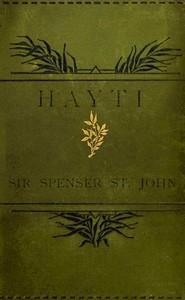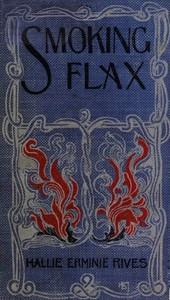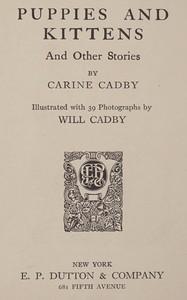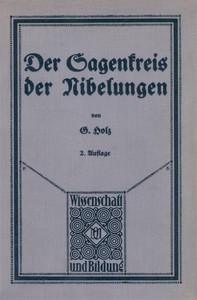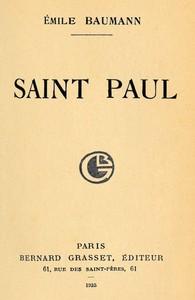|
|
Read this ebook for free! No credit card needed, absolutely nothing to pay.Words: 81728 in 21 pages
This is an ebook sharing website. You can read the uploaded ebooks for free here. No credit cards needed, nothing to pay. If you want to own a digital copy of the ebook, or want to read offline with your favorite ebook-reader, then you can choose to buy and download the ebook.

: Hayti; or The black republic. by St John Spenser Sir - Haiti; Haiti History@FreeBooksThu 08 Jun, 2023 former two returned to France, whilst Roume went ultimately to Santo Domingo. It would interest few to enter into the details of this history of horrors, where it is difficult to feel sympathy for any party. They were alike steeped in blood, and ready to commit any crime to further their ends. Murder, torture, violation, pillage, bad faith, and treachery meet you on all sides; and although a few names arise occasionally in whom you feel a momentary interest, they are sure soon to disgust you by their utter incapacity or besotted personal ambition. The National Assembly in Paris, finding that their first commissioners had accomplished nothing, sent three others, two of whom, Sonthonax and Polv?rel, are well known in Haytian history. They had full powers, and even secret instructions, to do all they could to give freedom to the slaves. These two commissioners were of the very worst kind of revolutionists, talked of little but guillotining the aristocrats, and were in every way unsuited to their task; they dissolved the Colonial Assembly, and substituted for it a commission, consisting of six whites of the stamp suited to them, and six freedmen. They decided to crush the respectable classes, whom they called Royalists, because they would not join in revolutionary excesses, and the massacre commenced at the Cape. Polv?rel appears to have had some idea of the responsibility of his position, though both cruel and faithless; but Sonthonax was but a blatant babbler, with some talent, but overwhelmed by vanity. He caused more bloodshed than any other man, first setting the lower white against the rich, then the mulatto against the white, and then the black against both. Well might the French orator declare on Sonthonax's return to France that "il puait de sang." The third commissioner, Aillaud, thinking, very justly, that his companions were a couple of scoundrels whom he could not control, embarked secretly and left for home. Whilst these commissioners were employed in destroying the fairest colony in the world, France, in a moment of excited fury, declared war against the rest of Europe, and a new era opened for Hayti. England did interfere, but in her usual way, with small expeditions, and thus frittered away her strength; but the resistance made was in general so contemptible, that with little effort we succeeded in taking J?r?mie in the south, and then St. Marc, and subsequently Port-au-Prince. Had we sent a large army, it is equally possible that we should not have succeeded, as the intention was to reimpose slavery. As the garrison of Jamaica could only furnish detachments, the British authorities began to enlist all who wished to serve irrespective of colour, and being supported by those who were weary of anarchy and revolutionary fury, were soon able to present a very respectable force in the field. The Spaniards, aided by the bands of revolted negroes, overran most of the northern province; in this they were greatly aided by Toussaint L'Ouverture, who now began to come to the front. Sonthonax, whose idea of energy was simply to massacre and destroy, ordered that every place his partisans were forced to evacuate should be burnt. At the same time he thought that a little terror might be of service, so he erected a guillotine in Port-au-Prince; and having at hand a Frenchman accused of being a Royalist, he thought he would try the experiment on him. An immense crowd of Haytians assembled to witness the execution; but when they saw the bright blade descend and the head roll at their feet, they were horror-stricken, and rushing on the guillotine, tore it to pieces, and no other has ever again been erected in Hayti. Curious people! they who never hesitated to destroy the whites, guilty or innocent, or massacre, simply because they were white, women and children, down to the very babe at the breast, who invented every species of torture to render death more hideous, were horrified because a man's head was chopped off, instead of his being destroyed in a fashion to which they were accustomed, and this at a time when white, coloured, and black were vying with each other in arts of bloodthirsty cruelty! The whole country was in terrible confusion; the French had not one man who had the talent or influence to dominate their divided factions; the coloured were represented by such respectabilities as Pinchinat, Bauvais, and Rigaud, but without one of incontestable superiority; the blacks were as yet led by such men as Jean Fran?ois and Biassou, who must even make the respectable negroes blush to acknowledge that they were of the same race; yet, as I have said, there was one man coming to the front who was to dominate all. Amid the many heroes whose actions the Haytians love to commemorate, Toussaint L'Ouverture does not hold a high rank. And yet the conduct of this black was so remarkable as almost to confound those who declare the negro an inferior creature incapable of rising to genius. History, wearied with dwelling on the petty passions of the other founders of Haytian independence, may well turn to the one grand figure of this cruel war. Toussaint was born on the Breda estate in the northern department, and was a slave from birth; it has been doubted whether he was of pure negro race. His grandfather was an African prince, but if we may judge from the portraits, he was not of the pure negro type. Whether pure negro or not, there is no doubt of the intelligence and energy of the man. Though but a puny child, by constant exercise and a vigorous will he became as wiry and active as any of his companions, and, moreover, gave up much of his leisure time to study. He learnt to read French, and, it is said, in order to understand the Prayer-Book, a little Latin; but he never quite mastered the art of writing. He was evidently trusted and kindly treated by his master's agent, who gave him charge of the sugar-mills. There is an accusation constantly brought against Toussaint, that of being a religious hypocrite, but his early life shows that it is unfounded. Whilst still a slave, his principles would not allow him to follow the custom of his companions and live in concubinage; he determined to marry, though the woman he chose had already an illegitimate son named Placide, whom he adopted. It is pleasing to read of the happy domestic life of Toussaint, and it is another proof of that affectionate disposition which made those who served him devoted to him. The three leaders of the insurgents were then Jean Fran?ois, a negro, about whom opinions differ. St. Remy says he was intellectual, though the general idea is more probable, that he was an energetic savage. Biassou was sensual and violent, as cruel as man could be and an avowed leader of the Vaudoux sect, and apparently a Papaloi; but the vilest of the three was Jeannot. He loved to torture his white prisoners, and drank their blood mixed with rum; but he was as cowardly as he was cruel, and the scene at his execution, when he clung to the priest in frantic terror, must have afforded satisfaction to the friends of those whom he had pitilessly murdered. Jeannot was also a great proficient in Vaudoux practices, and thus gained much influence with the ignorant slaves; it was this influence, not his cruelties, which roused the anger of Jean Fran?ois, who seized and summarily shot him. It is curious to read of the projects of these negro leaders. They had no idea of demanding liberty for the slaves; they only wanted liberty for themselves. In some abortive negotiations with the French, Jean Fran?ois demanded that 300 of the leaders should be declared free, whilst Toussaint would only have bargained for fifty. The mulatto leaders, however, were most anxious to preserve their own slaves, and, as I have related, gave up to death those blacks who had aided them in supporting their position; and a French writer records that up to Le Clerc's expedition, the mulattoes had fought against the blacks with all the zeal that the interests of property could inspire. The blind infatuation of the planters prevented their accepting Jean Fran?ois' proposition; they even rejected it with insult, and savagely persecuted the negroes who were living in Cap Ha?tien. Biassou then ordered all his white prisoners to be put to death; but Toussaint, by his eloquent remonstrances, saved them. Other negotiations having failed, Biassou attacked the French lines, and carried them as far as the ramparts of the town. The planters had brave words, but not brave deeds, with which to meet their revolted bondsmen. All the black prisoners taken by the insurgents were sent over the frontiers and sold as slaves to the Spaniards. Toussaint remonstrated against this vile traffic, but never shared in it. The new Governor, Laveaux, at this time nearly stifled the insurrection, dispersing all the insurgent forces; but, as usual, not following up his successes, allowed the negroes again to concentrate. No strength of position as yet enabled the blacks successfully to resist the white troops. Free books android app tbrJar TBR JAR Read Free books online gutenberg More posts by @FreeBooks

: Puppies and kittens and other stories by Cadby Carine Cadby Will Photographer - Animals Juvenile fiction@FreeBooksThu 08 Jun, 2023
|
Terms of Use Stock Market News! © gutenberg.org.in2025 All Rights reserved.

